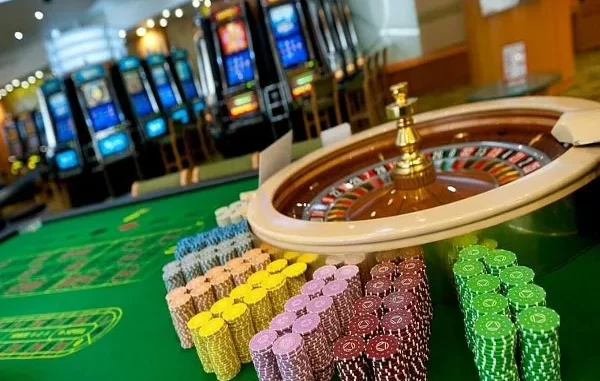
Most gamblers think they know why they play. “I do it for fun.” “It’s just entertainment.” “I enjoy the excitement.” But after years of tracking my own gambling patterns and talking to hundreds of other players, I’ve discovered that our stated motivations rarely match our actual driving forces.
This quiz reveals your true gambling motivation by examining your behaviors, not your intentions.
Understanding your gambling motivation becomes clearer with platforms that offer diverse experiences, such as Wina Max, where sports betting, live casino, and poker create distinct entertainment options. Their transparent approach, featuring live streaming, detailed statistics, and varied betting markets, helps distinguish between genuine sports interest and emotional escape gambling.
Section 1: Timing and Frequency
When do you most often gamble?
A) When I have free time and feel like having fun
B) At regular, predictable times (same days, same hours)
C) When I’m stressed, sad, angry, or overwhelmed
How often do you think about gambling when you’re not playing?
A) Rarely, only when deciding what to do for entertainment
B) Regularly, as part of my routine mental planning
C) Frequently, especially when dealing with life problems
If your favorite casino site was down for a week, you would:
A) Find other entertainment without much concern
B) Feel annoyed and keep checking when it’s back online
C) Feel anxious and immediately seek alternative gambling options
Section 2: Emotional States
Before gambling, you typically feel:
A) Relaxed and looking forward to entertainment
B) Neutral, like you’re performing a routine activity
C) Emotionally uncomfortable and seeking relief
During gambling sessions, you:
A) Stay aware of time and surroundings
B) Lose track of time but remain generally present
C) Feel disconnected from everything except the game
After gambling (regardless of winning or losing), you typically feel:
A) Satisfied with the entertainment experience
B) Like you’ve completed a familiar routine
C) Temporary relief followed by return of underlying emotions
Section 3: Decision-Making Patterns
You usually decide to gamble:
A) After considering it among other entertainment options
B) Without much conscious decision-making
C) Suddenly, often impulsively, when emotions are high
Your gambling sessions end when:
A) You’ve had enough entertainment or reached a time limit
B) You hit a predetermined stopping point or a routine end time
C) You feel emotionally satisfied or run out of money
If you win early in a session, you:
A) Often cash out and enjoy the win
B) Continue playing your usual amount
C) Feel a temporary euphoria but keep playing to maintain the feeling
Section 4: Money and Control
You view gambling money as:
A) Entertainment budget, like movie tickets or dining out
B) A regular expense, like utilities or subscriptions
C) Investment in emotional relief or potential life change
When you lose more than planned, you:
A) Feel disappointed but accept it as an entertainment cost
B) Feel mildly frustrated, but stick to your routine
C) Feel genuinely distressed and consider chasing losses
Your gambling budget is:
A) Clearly defined and rarely exceeded
B) Somewhat flexible but generally consistent
C) Often unclear or frequently exceeded during emotional periods
Section 5: Winning and Losing Patterns
When you have a big win, you:
A) Feel excited and often cash out to enjoy it
B) Feel pleased, but continue your normal gambling routine
C) Feel a rush and want to keep playing to win even more
When you’re on a losing streak, you:
A) Accept it as part of the entertainment cost
B) Feel mildly annoyed but stick to your limits
C) Feel compelled to continue playing to “get even”
Your biggest gambling regret involves:
A) Missing out on a fun experience due to bad luck
B) Playing longer than originally planned
C) Chasing losses or gambling money you couldn’t afford to lose
Scoring Your Results
Count your A, B, and C answers:
Mostly A’s – Fun Gambler: You genuinely gamble for entertainment. You maintain awareness of time, money, and alternatives. Gambling competes with other activities for your attention and doesn’t dominate your thinking. Congratulations—you’re using gambling as intended. Continue monitoring your patterns to ensure this doesn’t shift over time. Set clear limits and stick to them.
Research game mechanics through resources like https://slotspeak.net/play-n-go-slots/ to understand how gambling works logically rather than emotionally.
Mostly B’s – Habit Gambler: Gambling has become routine rather than a conscious choice. You play at predictable times and amounts, often on autopilot. While not destructive, you may be gambling more from habit than genuine enjoyment. You’re not in immediate danger, but routine gambling can slowly increase in frequency and amount without conscious awareness. Consider:
- Setting specific gambling schedules rather than defaulting to routine
- Regularly evaluating whether you still enjoy the activity
- Experimenting with gambling breaks to assess your attachment
Mostly C’s – Escape Gambler: You primarily gamble to escape uncomfortable emotions or life circumstances. Gambling serves as emotional medication rather than entertainment, making it the riskiest motivation pattern. Your gambling pattern carries a higher risk because it’s driven by emotional needs rather than entertainment desires. Consider:
- Addressing underlying stress, anxiety, or life problems directly
- Developing alternative coping mechanisms for difficult emotions
- Setting stricter limits or taking breaks when emotions are high
- Possibly seeking support if gambling feels necessary rather than optional

Leave a Reply